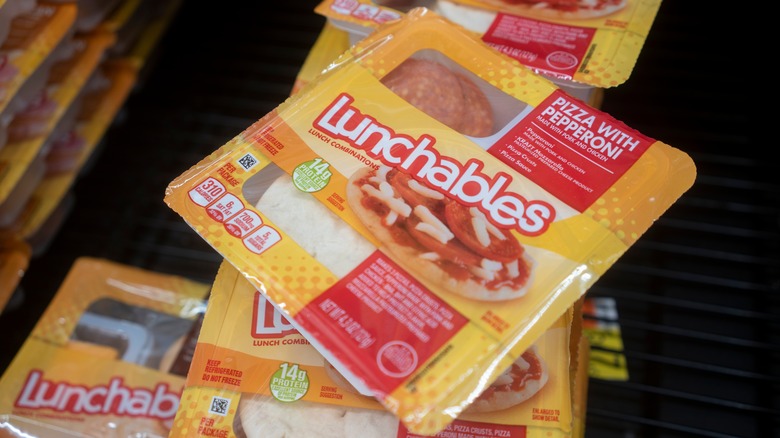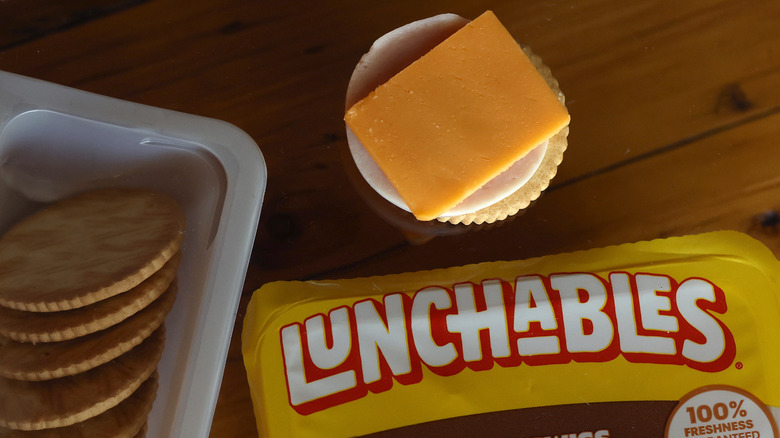Lunchables Accused Of Worrying Levels Of Lead In Children's Meals
Lunchables, the popular cafeteria meal kits, may be exposing children to dangerous levels of lead, according to a new report from Consumer Reports. The organization tested 12 varieties of children's lunch kits and found that most of them contained concerningly high levels of lead, with Lunchables at the top of the list. Now, they're calling on the federal government to remove Lunchables from the National School Lunch Program.
Exposure to lead can cause lead poisoning, which has wide-ranging health consequences, including anemia, hypertension, renal issues, and reproductive harm. It is especially dangerous for children, as it can hinder brain development, resulting in learning disabilities. In severe cases, lead poisoning can cause seizures, comas, and even death.
Despite this, there are no federal regulations limiting the amount of lead in most foods. Each state can set its own limits, and Consumer Reports used California's maximum allowable dose level, as it is the lowest in the nation. By that metric, a single kit of Lunchables Turkey and Cheddar Cracker Stackers contains 74% of the maximum allowable dose, while Lunchables Pizza with Pepperoni contains 73%. Some have criticized California's lead limits as overly cautious. On the other hand, the Centers for Disease Control and Prevention states, "No safe blood level in children has been identified." While none of the Lunchables kits exceeded any legal lead limit, they come so close that Consumer Reports warns trace levels of lead in other meals could push a child over the edge.
Lunchables and the National School Lunch Program
Although Lunchables weren't originally intended for kids, they quickly found their target audience in cafeterias. Today, Lunchables are synonymous with elementary school lunches, so much so that last year, they were added to the National School Lunch Program (NSLP). The NSLP, which provides free and low-cost meals to public schools and nonprofit private schools, is overseen by the U.S. Department of Agriculture. In preparation for the 2023-24 school year, the USDA approved two varieties of Lunchables — Turkey and Cheddar and Cheese Pizza — to join the program. Now, Consumer Reports is calling for both to be removed.
Brian Ronholm, director of food policy at Consumer Reports, said in a statement, "Lunchables are not a healthy option for kids and shouldn't be allowed on the menu as part of the National School Lunch Program."
The Lunchables included in the NSLP are different from the store-bought version, and Kraft-Heinz claims they were specially formulated to provide more nutrients to children. Consumer Reports was unable to obtain the NSLP versions for lead testing, but Consumer Report's review of the nutrition labels revealed that both Lunchables kits included in the NSLP contain higher levels of sodium than their store-bought counterparts. These revelations come on top of the already significant number of health concerns with Lunchables. These mostly concern the fact that Lunchables are highly processed, which is also the likely cause of their lead content. Lead is naturally present in the Earth, which accounts for some of the lead present in Lunchables, but processing and packaging introduce significantly more heavy metals and plastics into food.

